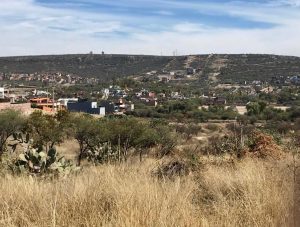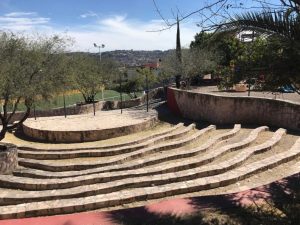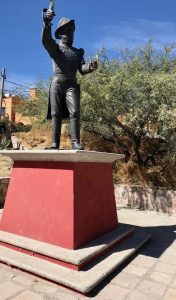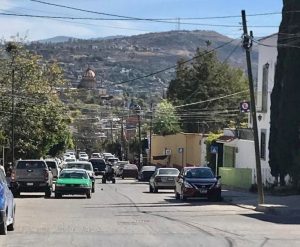If you, like me, love being outside, then you’d love being here, as I do. “Here” is a place where the sun happily shines out of a cobalt-blue sky roughly 350 days of the year, and every day feels like vacation. “Here” for me is the heart of Mexico, San Miguel de Allende, in the country’s central mountains, where I, gracias a dios, have been able to retire.
To me, being outside, beneath that cobalt sky, among the tall swaying trees, surrounded by Nature’s sounds and colors, is pure freedom. Being “outside the box” – the boxy, confining, and sometimes suffocating walls of houses, classrooms, shops, and offices – is, for me, pure bliss. Lately I’ve been wondering: How did I get like this?
Perhaps it’s true that we experience a second childhood in our older age, especially when retirement provides us with child-like freedoms. Suddenly, it seems, we have time to play again. I can still hear my young mother’s voice clearly in my mind: “Out, out!” she’d gaily say, “go outside and play, kids! Look! God gave you a sunny day! It’s a sin to waste good weather!”
So we’d gladly go – unsupervised – into the woods or fields near our suburban New Jersey home, playing cowgirls or “Indian squaws,” or gathering wild flowers or berries; along the edges of the neighborhood construction sites, picking up discarded chunks of wood to make furniture for our Ginny dolls; around the periphery of a neighbor’s pond, catching pollywogs in jars; through the back path to the town’s little library, to stock up on kids’ books; or along new paths, just to see where they’d lead us.
On weekends during the school year and all day during school’s summer breaks we were free to explore — from breakfast until the twelve-o’clock whistle blew, when we knew to come home for a Campbell’s soup and peanut-butter-and-jam sandwich lunch, then from after our nap time until we were called home for dinner.
I was the eldest and therefore the responsible one, the leader who chartered our daily courses. Every day outside was an adventure for us. We were fearless, explorers. Nature was our classroom-without-walls. The sky was our only ceiling.
So it seems this ache for unfettered outdoor adventure and exploration has never left me. It’s been in there all along. And now that I live in this beautiful place with its temperate climate, and I’m not tied to an indoor job, I can let that adventuresome child go out and play every day.
Yesterday, for example, I walked away from San Miguel’s el centro, where I’m house-sitting for friends, to check on the ongoing construction of my new-apartment-to-be. I’m happy to report it’s coming along nicely, although the promised February 1st move-in date looks highly unlikely. Never mind. “This is Mexico,” as we gringos learn to say.
Here are some highlights of what I saw outside on my several-mile walk yesterday:







My new apartment is off of Avenida Independencia, which, I think is fitting. My friend Ramiro’s nickname for me has always been el Ángel de Independencia. So my new place, Lord willing, will be my Heaven.
